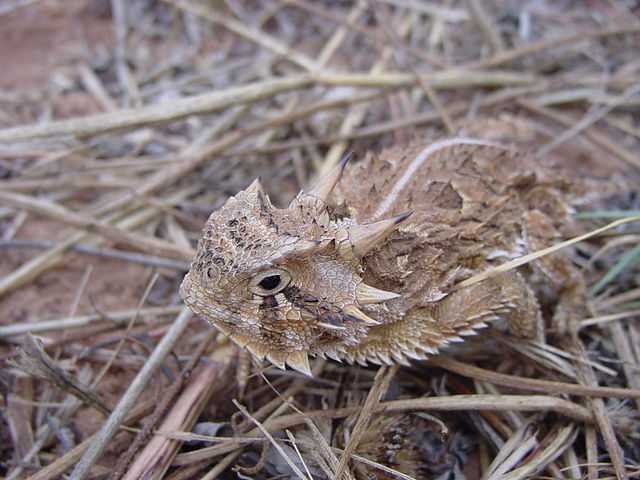The Texas horned lizard is in decline in much of the state of Texas. It is illegal to possess this species.
If you are out herping in the state of Texas and you see a Texas horned lizard (Phrynosoma cornutum), the state of Texas would like to get more information on where you saw it.

Ben Goodwyn/Wikipedia
The Texas horned lizard is in decline in much of the state of Texas. It is illegal to possess this species.
“Take a picture and record where you saw it,” Nathan Rains, a wildlife diversity biologist with the Texas Parks and Wildlife Department told the Daily Tribune. “Then, enter that information into iNaturalist.”
Where Did All The Horny Toads Go?
Texas Horned Lizard In Decline
Horned Lizards Released Back Into The Wild In Texas
In order to enter the information, you must first download the iNaturalist app. The application, which works on smart phones, tablets and computers, enables scientists and researchers to retrieve that data.
“It’s been revolutionary for our assessments of where horned lizards occur,” Rains said. “With a program like this, we can get real data. That was a huge milestone for us when this program started.”
Each entry is investigated to ensure that the lizard photographed is indeed a Texas horned lizard, as sightings are often misidentified, Rains said.
Horned lizards are also called horny toads, horned toads and horned frogs, but they are lizards. Of the 16 species of horned lizards, eight are native to the United States, and three are native to Texas.
Texas Parks and Wildlife released 10 baby Texas horned lizards in late summer 2018 with tracking devices, and in April 2019, officials with Texas Parks and Wildlife were able to locate five of them as they buried themselves for winter brumation. The hatchlings, born at the Fort Worth Zoo in 2018, are part of a state program to reintroduce the iconic reptile back into the habitats of Texas where they were once abundant. The lizard was listed as a protected species by the state in 1967. In 1977, they were added to the threatened and endangered species list.
The Texas horned lizard, also called the horny toad or horned frog, is in decline in most of the state of Texas except west Texas, according to Russell Martin, a wildlife biologist with the Texas Parks and Wildlife Department. West Texas is where there are large oil and gas exploration fields, and where the fight over the proposed endangered species listing of the Dunes sagebrush lizard (Sceloporus arenicolus) has taken place over the last few years.


